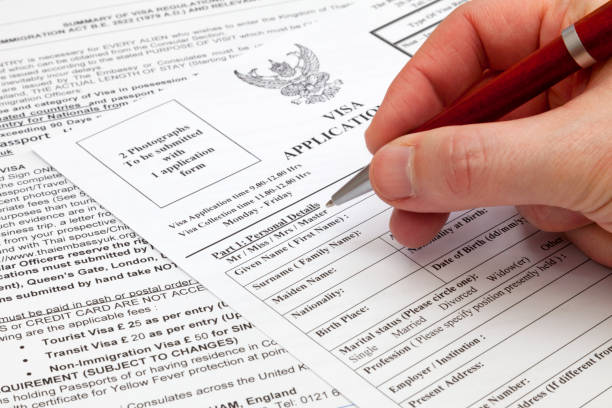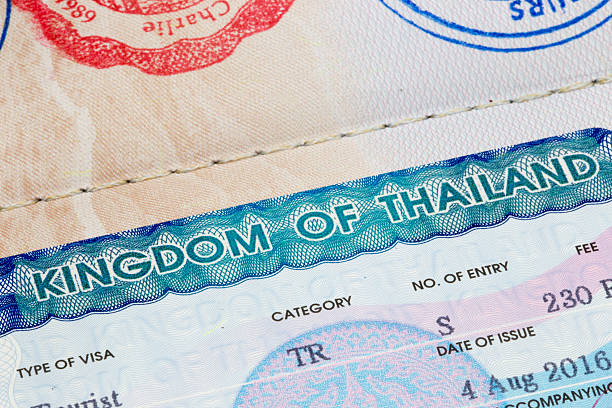DTV Visa Agency in Thailand, we assist you in all the process to get this visa fast and without stress!



Welcome to The Thailand Lawyer Service – your dedicated legal support team based in Bangkok. We specialize in visa assistance, legal consultancy, and notary services for individuals, professionals, and businesses. In this comprehensive guide, we will walk you through everything you need to know about the DTV Visa in Thailand—also known as the Destination Thailand Visa which is valid 5 years! Whether you’re a remote worker, digital entrepreneur, or online freelancer planning to live and work in Thailand, this guide covers the process, requirements, setup, and ongoing obligations associated with the DTV Visa.
What is the DTV Visa in Thailand?
The DTV Visa (Destination Thailand Visa) is a newly introduced long-stay visa program created by the Thai government to attract digital nomads, remote workers, and foreign professionals who wish to stay in Thailand while working online. It is part of Thailand’s broader strategy to boost its digital economy and open the country to international talent and innovation.
The DTV Visa is designed to offer a legal, flexible pathway for digital professionals to live in Thailand without violating local employment laws, offering both long-term stability and peace of mind for global remote workers.
Who is Eligible for the DTV Visa?
The DTV Visa is ideal for individuals who meet the following general conditions:
Foreign digital nomads or remote workers
Freelancers with overseas clients
Online entrepreneurs with businesses registered outside Thailand
Digital content creators or remote employees for non-Thai companies
Minimum income threshold as defined by Thai immigration
Must not engage in local Thai employment or seek clients within Thailand
While the specific eligibility criteria may evolve, the key emphasis is on location-independent work with non-Thai entities. The visa is structured to ensure that recipients contribute to the Thai economy through living and spending without disrupting the local labor market.
Required Documents for DTV Visa Online Application
The DTV Visa requires a comprehensive set of documents. Below is a general overview of what is typically needed:
Valid passport (with at least 6–12 months remaining before expiry)
Proof of employment or business registration outside Thailand
Recent digital work contracts, invoices, or client references
Bank statements or proof of adequate financial resources
Personal information documents (CV, address, etc.)
All documents should be in English or Thai.
Application Process for the DTV Visa is Online!
The DTV Visa application process is designed to be straightforward but thorough. The steps include:
1. Pre-screening and Consultation
Before initiating the application, a thorough review of your eligibility, income, work profile, and supporting documents is conducted. This is where The Thailand Lawyer Service assists by verifying your qualifications and preparing the correct documentation.
2. Document Preparation
We help gather, translate (if necessary), and certify all your documents to ensure they meet Thai immigration requirements. Any missing or invalid paperwork could result in delays or denial.
3. Online Submission of documents
Depending on your country of residence, the application may is submitted online or directly to a Thai embassy/consulate or directly through Thai immigration offices inside Thailand (for those applying from within the country).
4. Approval and Visa Issuance is Online Now!
Once approved, the DTV Visa will be issued online and is valid each time 180 days for 5 years validity.
Why Choose the DTV Visa Over Other Thai Visas?
Thailand offers several types of long-stay and work-related visas, including the LTR Visa, Retirement Visa, Business Visa, and Elite Visa. However, the DTV Visa offers unique advantages for the modern digital workforce:
Tailored for location-independent professionals
No requirement to incorporate a Thai company or secure a work permit
More flexible compared to traditional business or retirement visas
Valid for remote work while living in Thailand
Online visa delivery by email
For individuals whose careers revolve around digital work, software, content creation, or consulting services, the DTV Visa offers a legal and compliant way to reside in Thailand without violating Thai labor laws.
Staying Compliant with DTV Visa Regulations
To maintain your DTV Visa status, ongoing compliance is essential. Here’s what you need to do:
Continue working for overseas clients or companies (no Thai employment)
Renew or extend your visa before expiration
Inform immigration of address changes or extended travel
Ensure income and work documentation remains accessible for checks
The Thailand Lawyer Service offers assistance with compliance services including report filings, renewals, and updates to help you focus on your work while we handle the legalities.
Digital Nomad Lifestyle in Thailand
With the DTV Visa in hand, you can enjoy the full benefits of the digital nomad lifestyle in Thailand. Popular hubs like Bangkok, Chiang Mai, Phuket, and Koh Samui offer fast internet, coworking spaces, community events, and a vibrant culture—all at a much lower cost of living than many Western countries.
As more professionals embrace remote work, Thailand continues to be a leading destination due to its infrastructure, hospitality, cuisine, and affordability.
How The Thailand Lawyer Service Can Help
Our law firm, based in Bangkok, specializes in assisting foreigners with Thai visa processing and legal compliance. With years of experience in immigration law, we offer end-to-end support for your DTV Visa journey, including:
Eligibility consultation
Document preparation and notarization
Legal translations
Visa filing and follow-ups
Post-visa reporting (90-day report, renewals)
Troubleshooting visa issues or rejections
We stay current on the latest visa regulations and immigration policies so you don’t have to. Our goal is to make your DTV Visa setup seamless, transparent, and fully compliant with Thai law.
Frequently Asked Questions About the DTV Visa
Can I work for Thai companies with a DTV Visa?
No. The DTV Visa only allows work with companies or clients based outside Thailand. Any local work or employment is prohibited.
Is the DTV Visa extendable?
Yes each time you enter you can stay 180 days in Thailand and extend it more 180 days for the validity of 5 years time.
Can I bring family with me under the DTV Visa?
This will depend on the latest immigration guidelines. Some categories may allow dependents; we recommend consulting with our legal team for the latest rules.
What happens if I stop working or change clients?
As long as you remain engaged in remote work with foreign entities and meet financial thresholds, changes in client contracts are generally allowed. Documentation must always be updated accordingly.
Contact Us for Your DTV Visa in Thailand
If you’re planning to relocate to Thailand as a digital nomad or remote worker, the DTV Visa is your ideal legal path. Let The Thailand Lawyer Service handle your visa process, documentation, and compliance so you can focus on what you do best.
Contact us today for a consultation online or in our office, send us your passport and main documents to start the application today, the process is about a week or 2 to get your visa ready delivered online by email!
